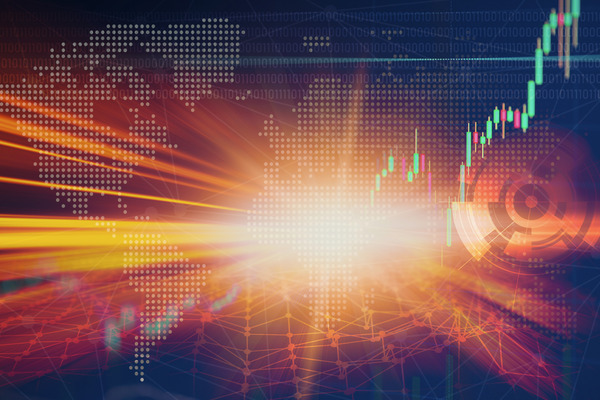Artificial intelligence (AI) is going to change the world—this is true beyond a shadow of a doubt.
It will make some businesses better and kill off a few others. The impact on financial markets is going to be enormous.
However, it will be nothing like all the ads and come-on promises we see in the media and online. All those ads about having an artificial intelligence system to pick stocks and predict where the stock will trade in a few days are leading you down a primrose path—they all have a close relationship to the southern leavings of a northbound horse. At best, these systems have a basic machine-learning algorithm that has been around for years.
Most of these so-called AI systems are just repurposed technical indicators that did not work the first time someone tried to package them for sale. And when it comes to the stock market, artificial intelligence resembles the E-Trade baby.
Here’s what I mean.

Like any baby, AI is going to make some mistakes (which when it comes to investing, will mean bad news for you).
Remember that the best generative AI programs routinely spit out incorrect information despite having access to massive amounts of data. There is still a massive “garbage in-garbage out” component to what passes as artificial intelligence. AI will cause market crashes when one program triggers another program, etc., and the selling begins to cascade.
Remember the crash of 1987 that was caused by a form of program trading known as portfolio insurance?
Now, imagine a program trading with much greater computing power and speed that operates without much human supervision. Add to that that everyone will insert the same factors and triggers into their own AI trading systems. It will be Flash Crash: The Quantum Version.
At least once (and probably much more frequently), we will see someone hack an AI system and make it do a computerized version of pump and dump.
As the baby grows, AI trading will begin to change into something more like HAL from 2001: A Space Odyssey. We will reach a point where the supercomputers and geeks control Wall Street.
The profit potential of trading will disappear in that world. A few thousand supercomputers programmed by brilliant mathematicians and physicists will not just create efficiency; they will create ruthless efficiency. Most small edges will be arbitraged out of existence.
A few people from the mold of Ed Thorp and Jim Simons may find ways to scrape out small edges by being a bit faster and smarter than others, but for the most part, most “stat arb” strategies will disappear. Thanks to maturing artificial intelligence, technical patterns will be exploited to extinction.
I would be very concerned about the future if I were a young Wall Street analyst or fund manager.
Let me be clear: we are not at that point yet.
But let me be equally clear that we are going to get there.
Depending on the day of the week, somewhere between 60% and 75% of trading in developed markets is already done by algorithms. AI will focus on market segments where there is plenty of liquidity to execute trades and lots of data points to use in forming its strategies.
A huge opportunity is developing because of the growing reliance on black boxes and the future of artificial intelligence. Markets are semi-efficient today. AI will not reduce the age of ruthless efficiency.
Years ago, Charlie Munger was asked how he would beat the markets today as an investor. He suggested that young investors should focus on inefficient markets, and also said:
Two markets are inefficient: very small ones, and ones where crazy people are doing crazy things, especially if they’re selling. From time to time, the big markets have some crazily mispriced securities in them. But there’s no question that in small markets, there’s a lot of opportunity to find mispricings.
Crazy people will also do crazy things at points of excess.
Warren Buffett has often talked about the opportunities created by the combination of the junk bond implosion and the S&L crisis that led to the creation of the Resolution Trust Company. More than one massive fortune came out of that carnage.
The same thing happened in the bursting of the internet mania and the Great Financial Crisis.
AI will not be above to do away with stupidity, leverage, and manias. When bubbles burst and mania crests, there will always be significant opportunities masked by fear. We take these opportunities as they happen. There are very small ones where we can make an enormous amount of money, day in and day out.
Small banks are one area where inefficacy and opportunities are rampant.
It helps that in the carefully created banking crisis-that-wasn’t, we had crazy people adding fuel to the fires of inefficiency by doing crazy things with large and small banks alike.
Outside banking, we can find high-quality small companies trading at ridiculous multiples of assets and earnings power simply because of a need for more attention.
A quick look shows that there are energy companies (renewable and fossil fuel), drug companies, medical technologies concerns, and increasingly, companies in various aspects of the real estate business that are too small for Wall Street to care about that have massive profit potential and a significant margin of safety.





